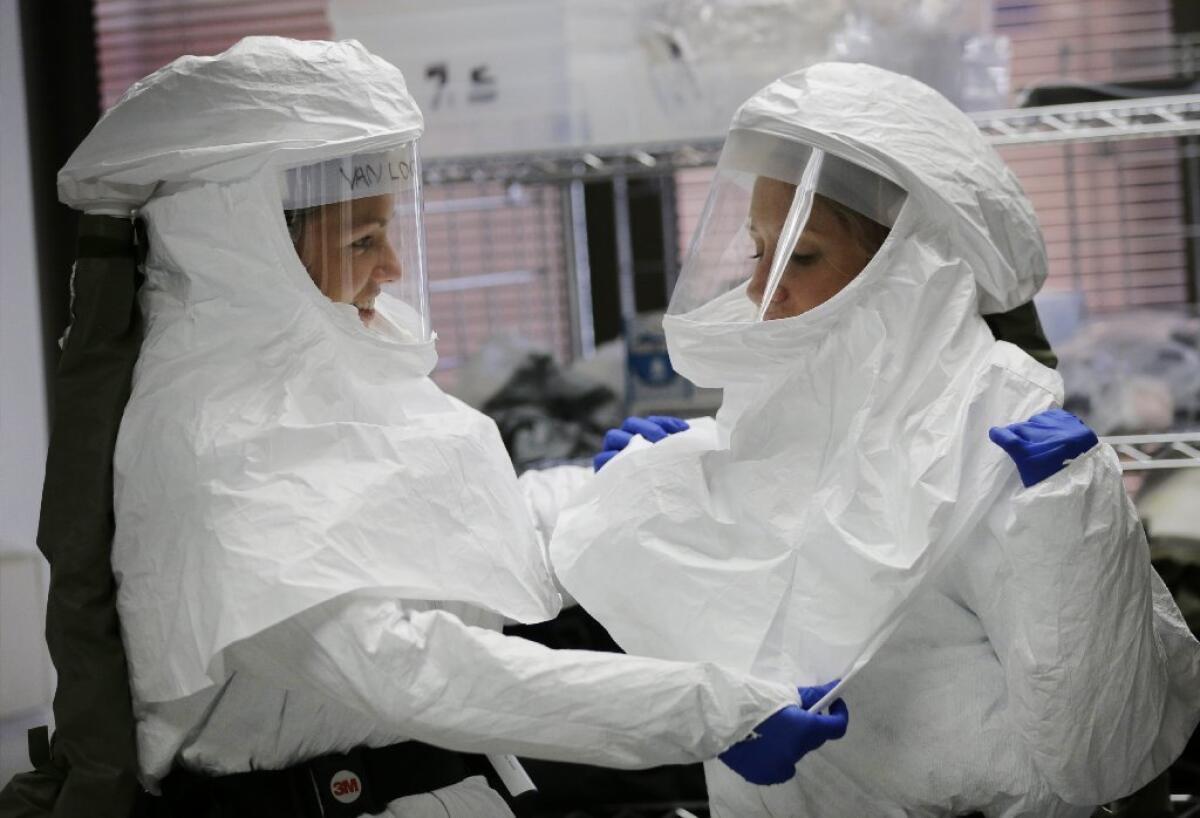Opinion: When an Ebola joke becomes a crime

Can they do that? As it turns out, yes they can.
An Ohio man was arrested and jailed after he told a dealer at a Cleveland casino that he was there, ha ha, to keep his distance from his ex, who had come back from Africa with Ebola.
The charge against Emanuel Smith: “felony inducing panic.” Smith is alleged to have broken a law that in part bans “initiating or circulating a report of an alleged or impending fire, explosion, crime or other catastrophe, knowing that such report or warning is false.”
In Ohio, if a crack about Ebola causes a panic or costs a business money, you could face criminal charges.
Smith’s ex-wife, of course, didn’t have Ebola, but after the remark was reported to management, the casino cleared out the pit where he’d been gambling, which meant lost revenue, and according to the law in Ohio, the more money is lost by the “panic,” the more serious the felony.
Free speech is not a limitless right. A “true threat” is not protected by the 1st Amendment, the Supreme Court has said, because the government has an interest in preventing fear and its consequences.
But what about an untrue threat, and fake fear? A parallel to the Smith case may be the fact that just joking about terrorism or bombs in a security line at the airport can get you busted. And a federal court upheld a Wisconsin law criminalizing fake bomb threats.
Yet if Jimmy Kimmel were to host his show in a hazmat suit and riff on Ebola, no one would understand it as anything but comedy. In the Ohio case, Smith’s lawyer says the comment was taken out of context, but could the casino be sure Smith was kidding?
As to economic damages and the sliding scale of the charge, part of it reflects the money and time the county had to spend tracking down Smith and debunking his joke. But do economic damages to a private business justify the government charging someone with a more serious offense, as a kind of theft? Or should economic harm be hashed out in a civil court, not a criminal one?
Smith’s case -- like Smith himself, unless his $10,000 bail has been posted -- is in the hands of the courts, where it may open a second Ebola front in the U.S. The medical one is against the extremely minute risk that Ebola poses in this country, and now there is the separate question of how we, and the Constitution, can keep from being infected with the contagion of fear.
Follow Patt Morrison on Twitter @pattmlatimes
More to Read
A cure for the common opinion
Get thought-provoking perspectives with our weekly newsletter.
You may occasionally receive promotional content from the Los Angeles Times.







